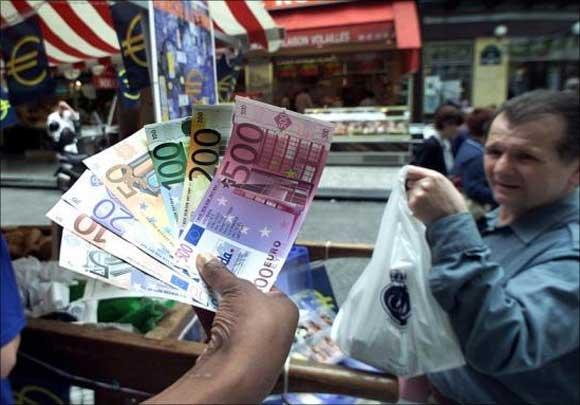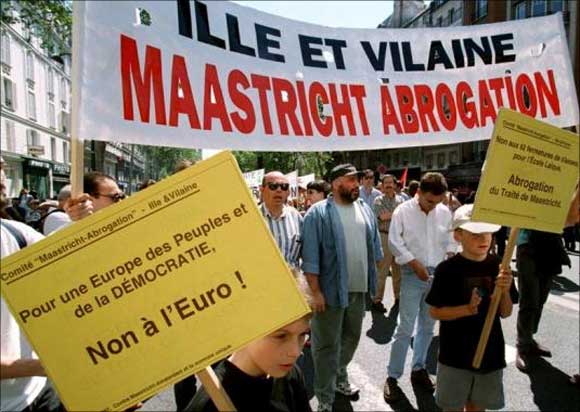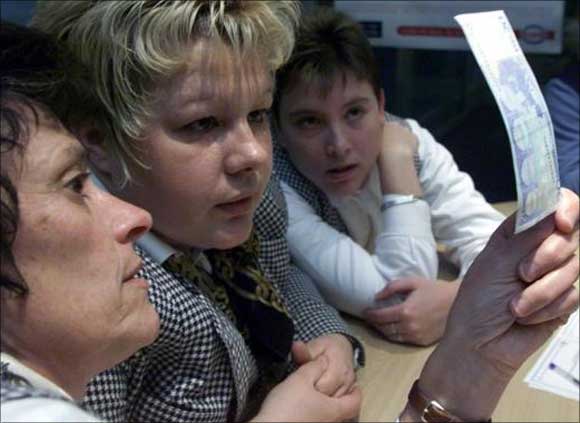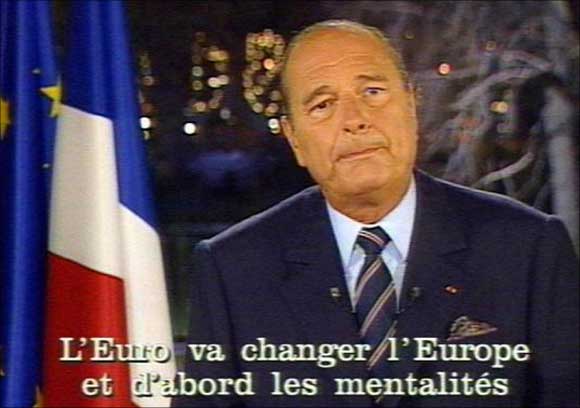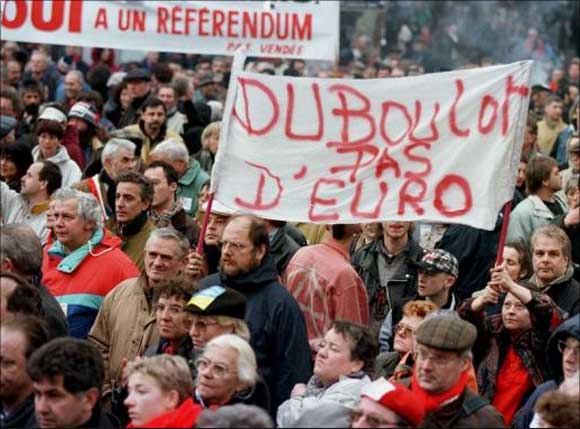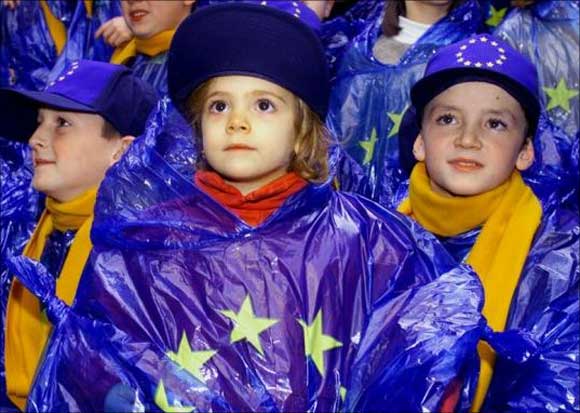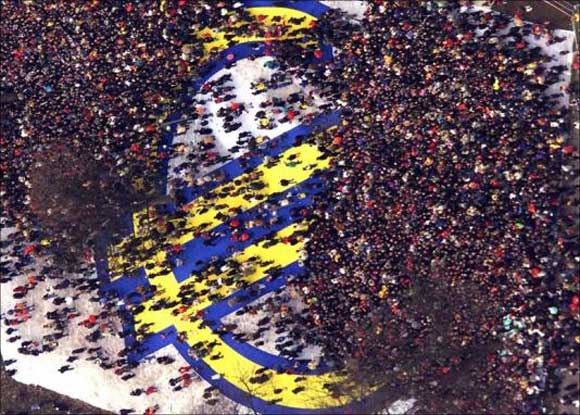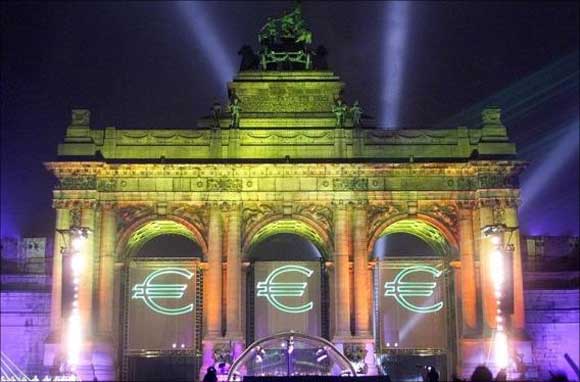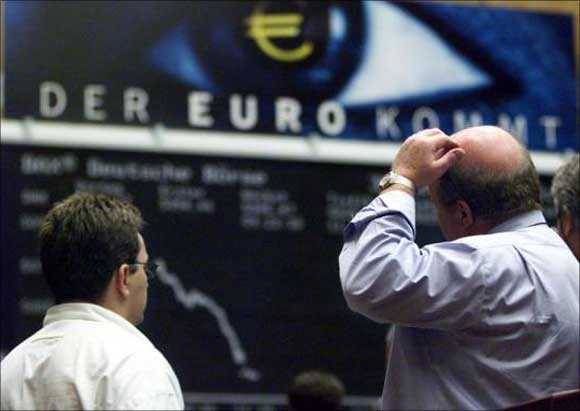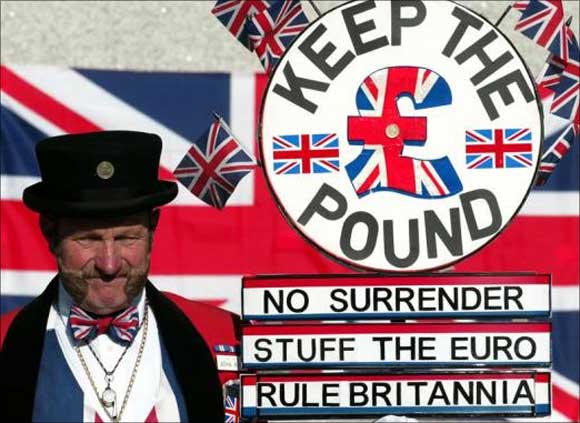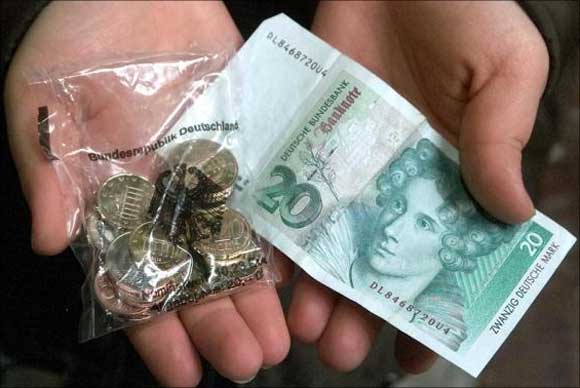 | « Back to article | Print this article |
SNAPSHOTS: When the Euro was launched
The Euro was formally launched on January 1, 1999, but the currency has only been used for non-cash transactions such as cheques and bank transfers.
The Euro notes and coins were officially launched on January 1, 2002, with the new currency becoming the sole legal tender of the Eurozone on March 1, 2002.
The Euro is the single currency of the European Monetary Union. It was adopted by eleven member states (Belgium, Germany, Spain, France, Ireland, Italy, Luxembourg, the Netherlands, Austria, Portugal and Finland) on January 1, 1999, and later by Greece on January 1, 2001, and Slovenia on January 1, 2007.
Cyprus and Malta swelled the size of the Eurozone when they introduced the currency in January 2008.
Image: City volunteers display specimen Euro notes at a Paris street market as part of an ongoing exercise to familiarise the French public to the new currency in their daily lives in June 15, 2001.
Click NEXT to read on . . .
SNAPSHOTS: When the Euro was launched
Image: A 'Euro calculator' is demonstrated in Bonn, December 29, 1998.
Click NEXT to read on . . .
SNAPSHOTS: When the Euro was launched
Image: Demonstrators, asking for the annulment of the Maastricht Treaty, march in the streets of Paris holding banners reading, 'For a democratic Europe for the people, No to the Euro', on May 16, 1998.
Click NEXT to read on . . .
SNAPSHOTS: When the Euro was launched
Image: French cashiers closely inspect a real 20 Euro banknote for the first time during a training session at a store in Mundolsheim, near Strasbourg, November 23, 2001.
Click NEXT to read on . . .
SNAPSHOTS: When the Euro was launched
Image: French President Jacques Chirac delivers a New Year address, saying, "The Euro is going to change Europe and above all people's attitudes," on December 31, 1998.
Click NEXT to read on . . .
SNAPSHOTS: When the Euro was launched
Image: Demonstrators hold a banner reading, 'Work, not Euro', during a demonstration in Paris ahead of France's national referendum on whether to join the monetary union, January 18, 1998.
Click NEXT to read on . . .
SNAPSHOTS: When the Euro was launched
Image: A consumer reads a guide about the Euro currency while queuing to purchase a Euro kit at a Rome post office, December 15, 2001.
Click NEXT to read on . . .
SNAPSHOTS: When the Euro was launched
Image: Children wait for the release of about 3,000 balloons bearing the Euro symbol to mark the currency's birth, in Brussels, December 31, 1999.
Click NEXT to read on . . .
SNAPSHOTS: When the Euro was launched
Image: About 10,000 people surround a Euro symbol in front of the European Central Bank headquarters in Frankfurt during a weekend of festivities to mark the birth of the new currency, January 1, 1999.
Click NEXT to read on . . .
SNAPSHOTS: When the Euro was launched
Image: Euro logos are projected onto the Cinquantenaire monument in Brussels as the Euro became legal tender in 12 of the 15 European Union states, January 1, 2002.
Click NEXT to read on . . .
SNAPSHOTS: When the Euro was launched
Image: A share trader scratches his head as he reads on a large placard, 'The Euro comes', installed above the DAX index board one day before the introduction of the single currency, December 30, 1998.
Click NEXT to read on . . .
SNAPSHOTS: When the Euro was launched
Image: A lone anti-Euro protester stands in Westminster in central London, June 9, 2003.
Click NEXT to read on . . .
SNAPSHOTS: When the Euro was launched
Image: A woman displays a so-called 'Euro starter kit' and a 20 German Mark note at Berlin's town hall, December 17, 2001.
Click NEXT to read on . . .
SNAPSHOTS: When the Euro was launched
Image: Price labels in Deutschmarks and Euros at a drugstore in Siegburg, near Bonn, December 16, 2004.
Click NEXT to read on . . .
SNAPSHOTS: When the Euro was launched
Image: A youngster, known as a Euro ambassador, tries his hardest to explain the new currency to an elderly man at a market on the outskirts of Rome, November 30, 2001.
